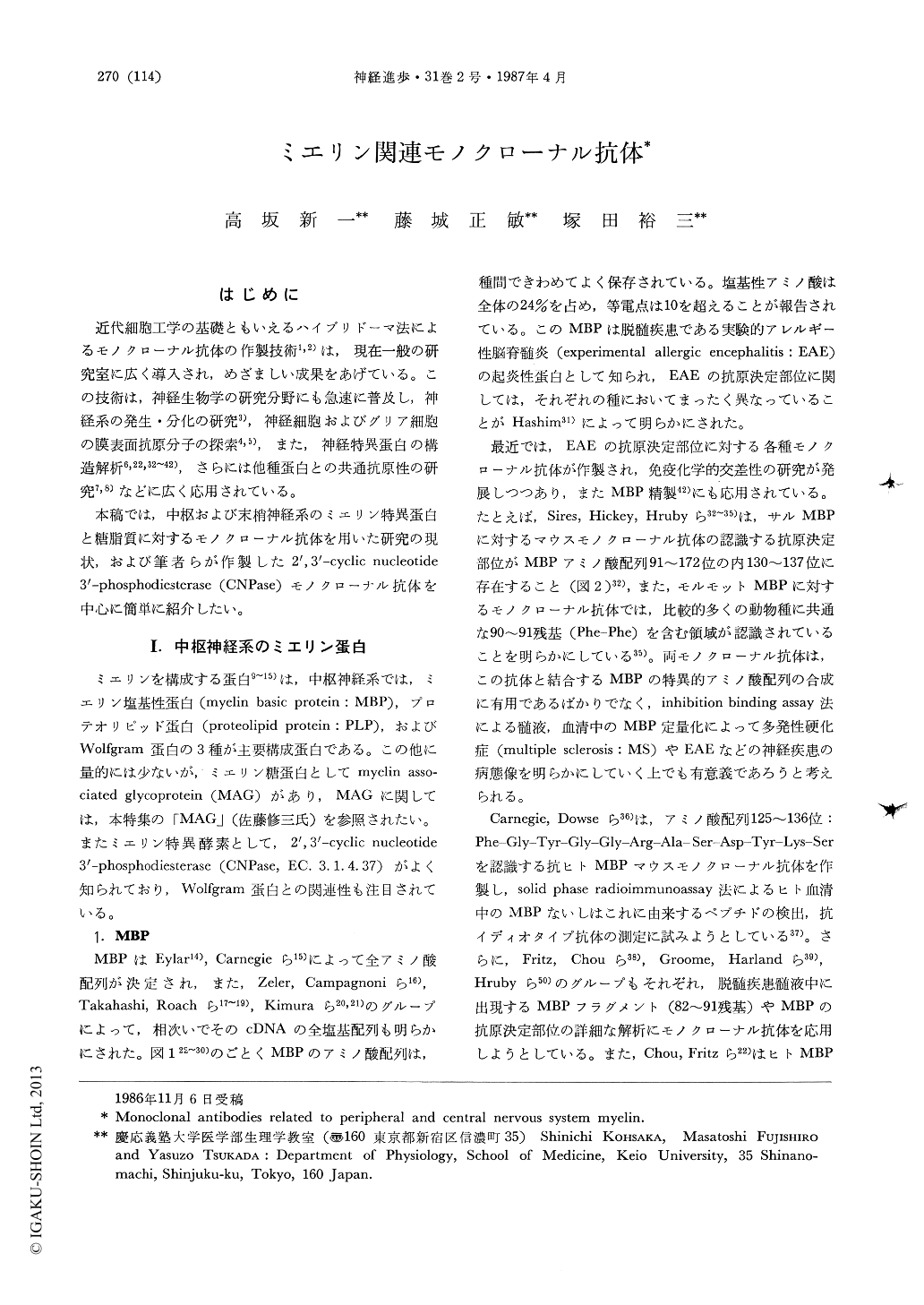Japanese
English
- 有料閲覧
- Abstract 文献概要
- 1ページ目 Look Inside
はじめに
近代細胞工学の基礎ともいえるハイブリドーマ法によるモノクローナル抗体の作製技術1,2)は,現在一般の研究室に広く導入ざれ,めざましい成果をあげている。この技術は,神経生物学の研究分野にも急速に普及し,神経系の発生・分化の研究3),神経細胞およびグリア細胞の膜表面抗原分子の探索4,5),また,神経特異蛋白の構造解析6,22,32〜42),さらには他種蛋白との共通抗原性の研究7,8)などに広く応用されている。
本稿では,中枢および末梢神経系のミエリン特異蛋白と糖脂質に対するモノクローナル抗体を用いた研究の現状,および筆者らが作製した2',3'-cyclic nucleotide3'-phosphodiesterase(CNPase)モノクローナル抗体を中心に簡単に紹介したい。
Monoclonal antibodies are now widely used among neurobiologist in detection and characterization of molecules in very low concentrations as well as in the histological localization of these molecules in tissue. In myelin research, antibodies have been used as a tool to detect myelin constituents in myelin-forming cells, and have also been used in developmental studies and in studies involving myelin pathology such as multiple sclerosis.
At the moment, production of monoclonal antibodies to myelin basic protein, myelin associated glycoprotein, PO protein, galactocerebroside, and 2',3'-cyclic nucleotide 3'-phosphodiesterase (CNP-ase) were reported. In our laboratory, rats were immunized by bovine cerebral white matter and the monoclonall antibody to CNPase was obtained. CNPase is enriched in the central nervous system (CNS) and is produced in oligodendrocyte, while in the peripheral nervous system (PNS) it is synthesized in Schwann cell. Immunohistochemical and immunoblotting analyses revealed that the monoclonal antibody reacts only with CNPase in the CNS, but with CNPase in the PNS. The results may indicate that the CNPase in the CNS and PNS has different epitopes in the molecules.

Copyright © 1987, Igaku-Shoin Ltd. All rights reserved.


